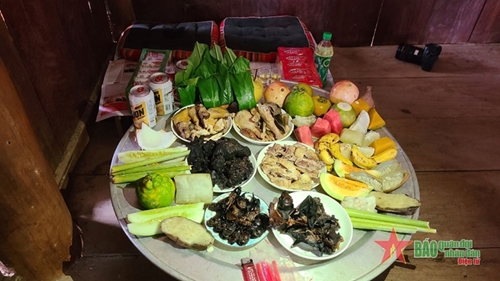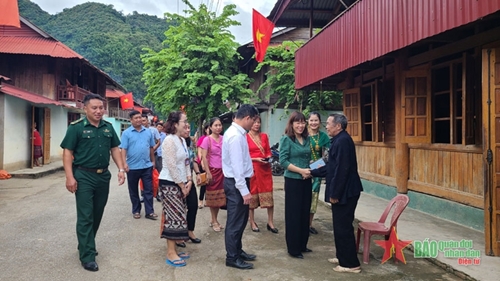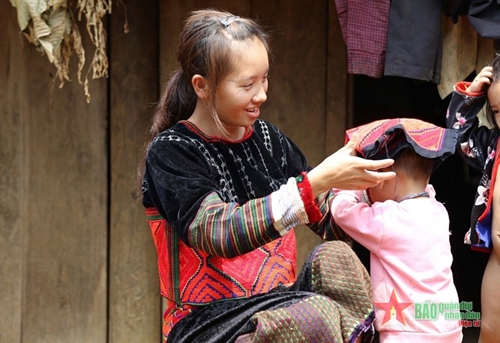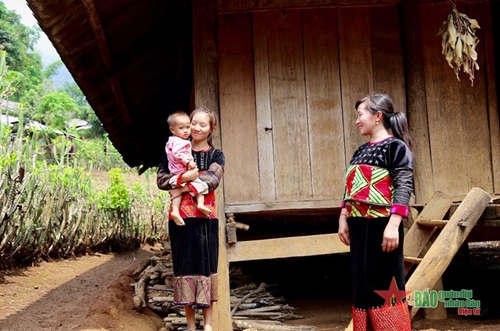October 04, 2023 | 20:49 (GMT+7)
Khau Ho – Unique Festival of Lao ethnic minority people in Dien Bien
PANO - Pa Xa Lao village in Pa Thom commune, Dien Bien district, Dien Bien province is home to the Lao ethnic minority people.
For them, the Khau Ho Festival plays an important role in their spiritual life. The festival is not only an opportunity for them to rest and relax after completing the harvesting of crops, but also a unique traditional cultural event. It is a chance for locals to show their gratitude to their ancestors and deities for their support and pray for favorable weather and good health.
Apart from its special cultural and religious significance, the festival is a golden opportunity for family members to meet and share their stories and experience. Families also prepare food to invite villagers to celebrate with them.
The Khau Ho Festival is similar to the new rice celebration of many ethnic minority groups. In the locals’ thought, streams and fields are guarded by deities. Therefore, this new rice celebration is an important cultural practice, demonstrating the customs and religious traditions of the Lao ethnic people.
The festival is annually held on the fifteenth day of lunar August. Before the important festival, family members will carefully prepare offerings to ancestors and gods. Most of the ingredients are home-grown agricultural products. There are three trays of offerings. The first one is for ancestors, the second is for mountain and water deities, and the last is placed in kitchen. Once the offerings are ready, families’ representatives will light up candles and pray to invite ancestors and gods to witness their sincerity and celebrate the festival with villagers.
Below are photos of the Khau Ho Festival of the Lao ethnic minority people in Dien Bien:
    |
 |
|
Khau Ho Festival plays an important role in the Lao ethnic minority people’s religious and spiritual life. |
    |
 |
|
Before the festival, family members collect and cook food as offerings to ancestors and deities. |
    |
 |
|
Main offerings to ancestors are foods made from agricultural products. |
    |
 |
|
Traditional costumes are also among the offerings. |
    |
 |
|
Families hold rituals and present offerings to ancestors. |
    |
 |
|
Representatives of local authorities and public organizations celebrating the festival with local people |
    |
 |
|
The festival is an opportunity for family members to gather and share stories and experience in developing economy. |
    |
 |
|
On the festival, children wear new clothes |
    |
 |
|
Local people visit each other on the festival to enhance solidarity. |
Translated by Tran Hoai